-
 Welcome to plumtriA platform for Research & Innovation
Welcome to plumtriA platform for Research & Innovation -
 Looking for Funding?Check out the current open calls
Looking for Funding?Check out the current open calls -
 Register today to start receiving our monthly newsletter
Register today to start receiving our monthly newsletter -
 Looking to partner up?Search our list of registered profiles
Looking to partner up?Search our list of registered profiles -
 You have questions on a particular funding programme?
You have questions on a particular funding programme?
News
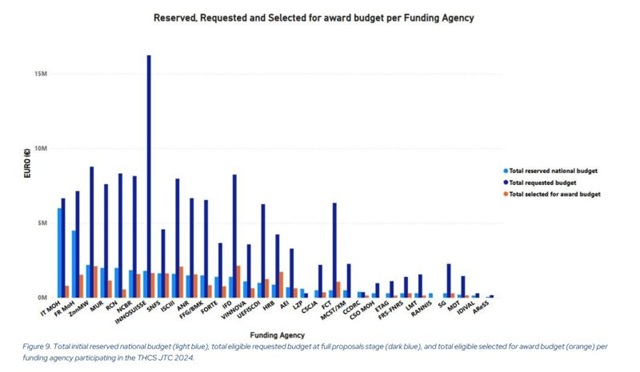 Uploaded On:
Uploaded On:
The THCS Transforming Health and care Systems announced the statistical analysis for the second THCS Joint Transnational Call 2024, drafted by Xjenza Malta Team - “Innovate to Prevent: Personalized Prevention in Health and Care Services”. The prevention strategies specifically targeting secondary, tertiary and quaternary prevention—by developing and scaling organizational models supported by existing and novel digital technologies.
114 eligible proposals were evaluated. The Call Steering Committee selected 20 proposals for funding, involving 25 of the participating funding agencies. The total allocated funding was approximately €25.3 million, with €21.7 million from EC top-up funds and €4.3 million from other participating organizations.
Read the full deliverable by visiting the below link.
Information and image source:
 Uploaded On:
Uploaded On:
The MCAST’s 4th Qualitative Research Conference which will take place in Malta between the 10th and 12th November 2025.
This conference places its focus on qualitative and mixed-methods research.
For more information, please refer to the conference’s website.
Should you be interested in presenting, we would like to kindly invite you to submit an abstract through the “Submit abstract” button on the website by the 15th August 2025.
For any queries please contact MCAST on …
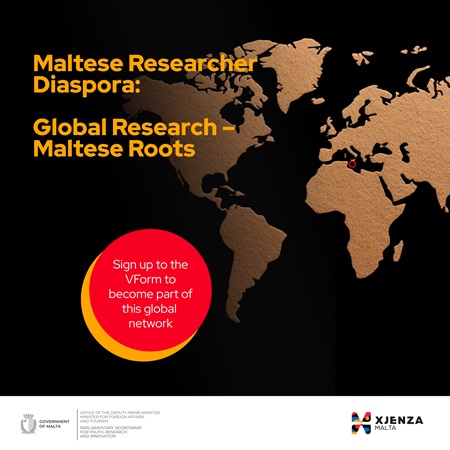 Uploaded On:
Uploaded On:
Xjenza Malta is building a global network of researchers with Maltese roots and we want you to be part of it.
If you're contributing to research and innovation overseas or know of other researchers within your network, this is an opportunity to:
- Boost the global visibility of Maltese research
- Connect with fellow researchers
- Open doors to new collaborations and opportunities
Sign up now to the V-Form by selecting the ‘Researcher’ category.
Learn more through Xjenza Malta's latest Facebook post.
Together, we’re growing a stronger, more connected Maltese research community.
Information and image source:
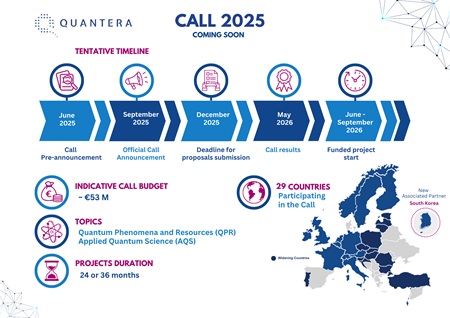 Uploaded On:
Uploaded On:
The QuantERA network pre-announces a new Call for international research projects in Quantum Technologies.
The Call Announcement: expected to be published on 4 September 2025.
Information about the Call:
The QuantERA Call 2025 is cofunded by organisations gathered under the QuantERA III Research & Innovation Action, with additional EC contribution.
Through this Call, the QuantERA III consortium aims at stimulating and intensifying research and innovation in the field of QT, contributing to the Strategic Research and Industry Agenda of the European Quantum Technology community.
The Call will comprise two topics:
- Quantum Phenomena and Resources
- Applied Quantum Science
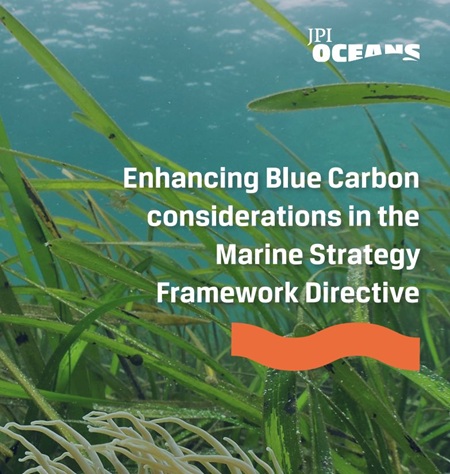 Uploaded On:
Uploaded On:
The side event “Improving the Integration of Blue Carbon Ecosystems into Global and European Regulatory Frameworks” was recently co-organised by the @JPIOceans Blue Carbon Knowledge Hub Policy Working Group on the margins of the high-level #UNOC3 conference in Nice. Held aboard the impressive Statsraad Lehmkuhl, the event brought together leading organisations including IOC UNESCO, C-BLUES, and the @JPI Oceans Blue Carbon Joint Action team.
Malta was pleased to be involved in this important Knowledge Hub, reflecting our ongoing commitment to advancing blue carbon solutions and contributing to global ocean and climate discussions.
Special thanks to @Sarah Camilleri for her valuable contribution to Malta’s engagement and for helping to strengthen Malta’s role in blue carbon policy and international ocean stewardship.
Information and image source:
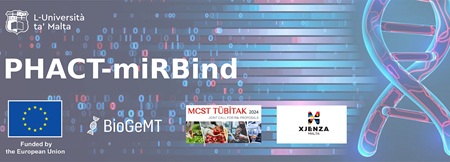 Uploaded On:
Uploaded On:
The BioGeMT team of the Centre for Molecular Medicine & Biobanking at the University of Malta has initiated a new international research collaboration with Sabanci University in Turkey to investigate microRNA target prediction using phylogenetic analysis.
The 24-month PHACT-miRBind project is funded by Xjenza Malta, in collaboration with the Scientific and Technological Research Council of Turkey, through the MCST/TUBITAK joint call for Research and Innovation proposals in Artificial Intelligence in Health.
The research will examine how evolutionary conservation analysis can enhance the accuracy of microRNA target identification. MicroRNAs are small regulatory molecules that control gene expression and are implicated in various diseases including cancer,…
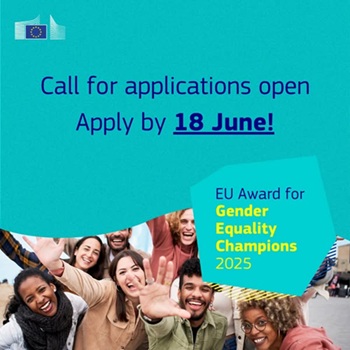 Uploaded On:
Uploaded On:
The call for the EU Award for Gender Equality Champions in R&I has been published.
The prize has been launched to complement and reinforce the eligibility criterion requirement…
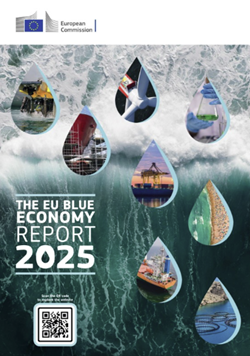 Uploaded On:
Uploaded On:
The eighth edition of the EU Blue Economy Report, presented in a new layout, provides a thorough overview of the scale and breadth of the Blue Economy within the European Union (EU). Its primary aim is to offer guidance to policymakers and stakeholders in fostering the growth of ocean-based and maritime-related markets and the sustainable use of coastal and marine resources. The Blue Economy sectors play an increasingly important role in achieving the European Commission’s key priorities to make the EU more competitive, sustainable, resilient and secure. By providing economic insights into the opportunities that emerge from the energy and digital transition, the Report also aims to attract investment in the Blue Economy sectors.
Visit the below link to read the full report.
…Visit the below link to read the full report.
 Uploaded On:
Uploaded On:
A few weeks ago, Xjenza Malta hosted an informative session covering the PRIMA Section 2 Call, PTMA, and NET2PRIMA schemes. This session aimed to provide prospective applicants with an overview of the funding opportunities, eligibility requirements, and practical tips for submitting successful proposals.
To ensure wider accessibility, the full recording has now been edited into three separate videos, each dedicated to one of the schemes. These videos are now available for on-demand viewing and can be accessed directly via the respective webpages for each call.
Watch the Info Sessions:
PRIMA Section 2 Call Info Session
…
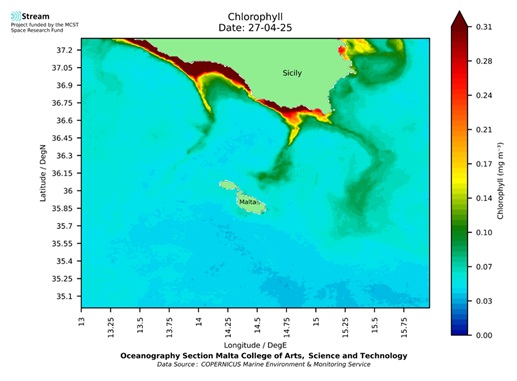 Uploaded On:
Uploaded On:
A spectacular cluster of marine filaments depicted the Sentinel3-OLCI satellite chlorophyll-a concentration image on Sunday 27th April. The image showing below is reproduced from the STREAM digital service which enables free, fast and easy access to satellite data on personal mobiles. Funded by the Space Research Fund of Xjenza Malta, STREAM is led by Professor Aldo Drago from the Oceanography Section of the Malta College for Arts, Science & Technology, in collaboration with two Maltese SMEs, MST AudioVisuals Ltd and THINK Design Ltd.
While such filaments are not uncommon in the stretch of sea south of Sicily, often disentangling in octopus-shaped cross-shore streaks, and reaching at times in close proximity to the Maltese Islands, the simultaneous occurrence of several filaments together is quite rare. The filaments carry the signature of biologically active water bodies, acting like spreading food for fish…
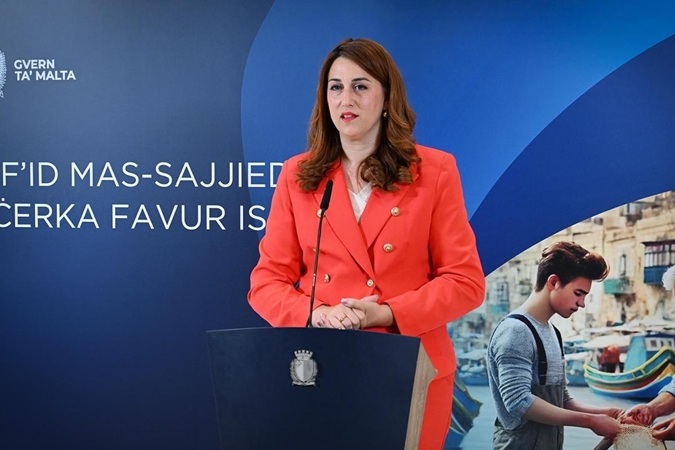 Uploaded On:
Uploaded On:
During a press conference, the Parliamentary Secretary for Fisheries, Aquaculture and Animal Rights, Alicia Bugeja Said, together with the Aquatic Resources Malta Agency (ARM), announced the details of a new scheme that will provide financial compensation to fishermen with registered vessels who apply to collaborate with researchers during their fishing trips.
This innovative scheme aims to facilitate the collection of real-time data from the sea, by directly involving fishermen in the research process. With this step, Malta is setting an example of how the fishing community can be an integral part of the sustainable management of marine resources.
It was explained that licensed fishermen who apply for this scheme to collaborate in the collection of data on their vessels, will be selected according to established criteria. They will be compensated approximately €320 per catch under…
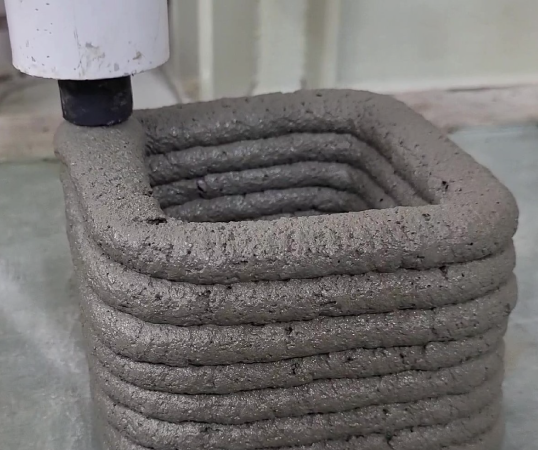 Uploaded On:
Uploaded On:
The urgent environmental challenges and a growing need for sustainable solutions have put the construction industry at a turning point. A new research project at the university is investigating an innovative method for developing high-performance, eco-friendly building materials by combining industrial by-products and construction waste with 3D concrete printing.
Conventional construction techniques present limitations, mostly depend on human interventions, and consume great quantities of natural resources. They are also responsible for a significant share of carbon emissions and the generation of solid waste. In fact, construction and demolition waste accounts for up to 40% of the world’s total solid waste. The challenges encountered by the traditional construction methods might be well addressed by 3D concrete printing technique. At the same time, concrete presents a unique opportunity through the incorporation of recycled materials…
Uploaded On:
Marine lightscapes, meaning the distribution and quality of light in marine environments, are emerging as a critical area of scientific inquiry due to their changes over the last century. Marine lightscapes are indeed experiencing two fundamental transformations: coastal darkening and the proliferation of artificial light at night. In one respect, some regions have experienced a long-term reduction in water clarity, referred to as coastal darkening, with large-scale drivers notably connected to effects of climate change and eutrophication. Conversely, urbanisation, fisheries, on- and offshore infrastructures, and shipping have increased the amount of artificial light at night (ALAN) pollution in many marine areas.
JPI Oceans has always been a pioneer in identifying urgent topics that address under-…
Uploaded On:
Missed the PRIMA Info Day held on 14th April 2025? No worries, you can now view the recording here below:
Video source:
Uploaded On:
Malta Vision 2050 is a national initiative shaping Malta’s long-term development. It sets a clear direction with measurable targets for 2035 and beyond, unifying various sectoral strategies under one comprehensive framework to guide national progress until 2050.
The Vision ensures all national policies align with today’s realities and tomorrow’s challenges. It promotes sustainable growth, resilience, and an improved quality of life, in line with European and global trends.
Shaping Malta’s Future, Together
Malta Vision 2050 is more than just a policy framework—it is our national commitment to a future that is inclusive, sustainable, and resilient. Through this vision, we are planning beyond political cycles, offering clarity, stability, and peace of mind for the years ahead.
By aligning our strategies, empowering our…
 Uploaded On:
Uploaded On:
The Commission has launched a consultation on the Action Plan for the cybersecurity of hospitals and healthcare providers.
The Action Plan is crucial to protect the healthcare sector from cyber threats and contributes to the successful implementation of the European Health Data Space (EHDS). By improving threat detection, preparedness, and response capabilities of hospitals and health providers, it will create a safer and more secure environment for patients and healthcare professionals.
In recent years, Member States have reported significant cybersecurity incidents affecting the healthcare sector—more than in any other critical sector. This Action Plan addresses the specific and urgent threats…
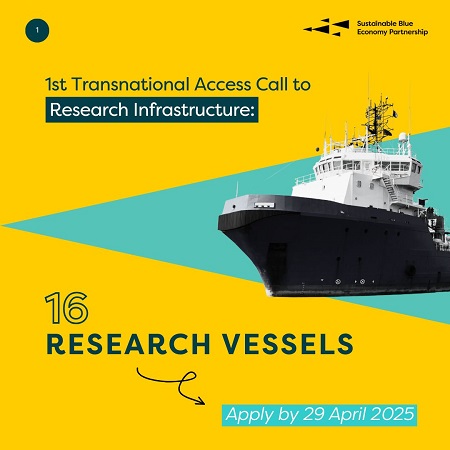 Uploaded On:
Uploaded On:
The Sustainable Blue Economy Partnership is launching the first call for access to Research Infrastructures [2025 TA Call to RIs], enabling applicants from the pan-European blue economy community to submit a proposal for utilising the Research Infrastructures (RIs) made available by providers partners of the Partnership. The call aims to implement the Partnership’s Strategic Research and Innovation Agenda (SRIA) by addressing key intervention areas, supporting internationalisation, and promoting Open Data and Open Science. It seeks to enhance innovation, align national investments with EU strategies, and improve operational efficiency by optimising the use and sharing of RIs.
The Sustainable Blue Economy Partnership offers a portfolio of 49 Research Infrastructure services through the integrated availability of the following typology of RIs:
- …
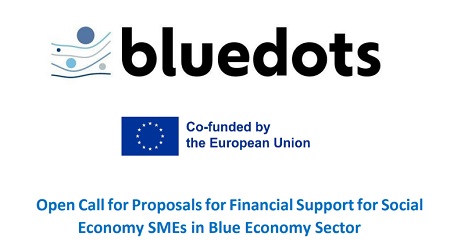 Uploaded On:
Uploaded On:
BLUEDOTS Project opened an application for the first Living Lab in Málaga, Spain, two-day transnational capacity-building event under BLUEDOTS project.
The Open Call for Proposals for Financial Support is targeting Social Economy SMEs and enabling organizations in the blue sector across Europe.
This initiative is designed to foster the digital transformation of operations within the blue economy, driving a transition toward smarter, more sustainable, and inclusive business models.
Key details of this call:
Application deadline: 4…
Uploaded On:
The central implementation mechanism of JPI Oceans is that of Joint Actions. They are formed around topics that fall under JPI Oceans’ thematic scope and contribute to its goals. They are supported by the interest and commitment of several member or associated countries under the leadership of one or co-leadership of several member countries and have developed a concept for implementation, including plans for resourcing, outcomes and impact.
Visit the below link to learn more about JPI Oceans' Joint Actions.
Information and video source:
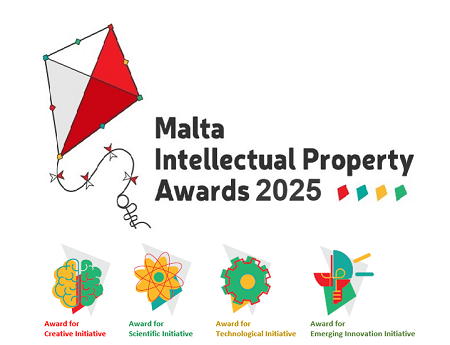 Uploaded On:
Uploaded On:
‘Intellectual Property’ refers to all products and works that are the fruit of the human mind and therefore plays a significant role in our daily lives. Rights accorded by the state in respect of intellectual property such as copyright, patents, trademarks and registered designs provide businesses, artists and inventors with a means to protect products and creations and also encourage them to invest in innovation and creativity to the benefit of society.
The Malta Intellectual Property Awards are aimed at recognising and promoting the creation of Intellectual Property in Malta. The Award has four categories:
- Award for Creative Initiative
The ‘Award for Creative Initiative’ rewards individuals or enterprises operating in the cultural and creative sectors. For the purposes of the ‘Malta Intellectual Property Awards’,…




